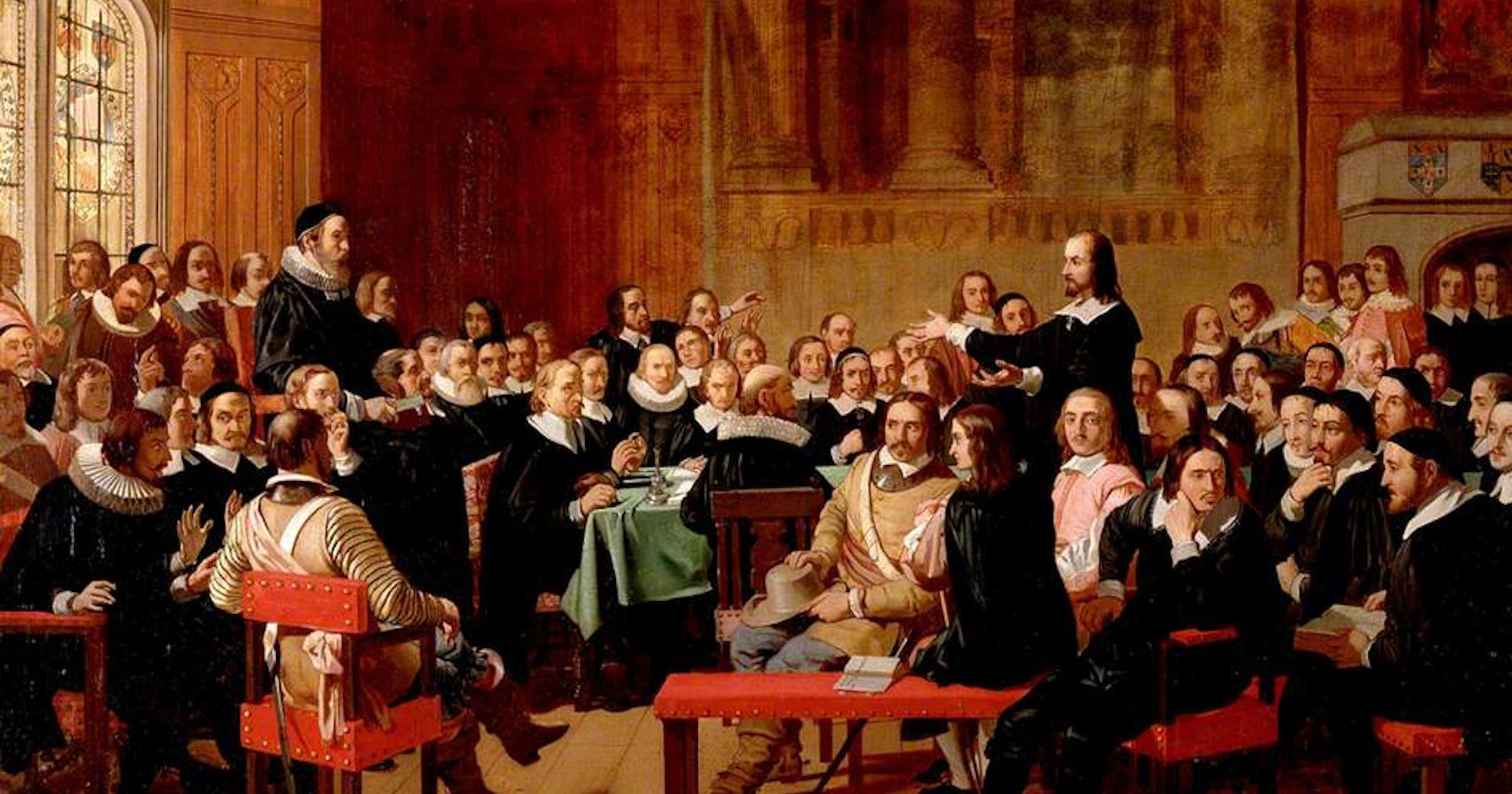On the corner of my desk rests a 60-year-old garage hammer. It was a "gift" from the church staff, given to me in my first year of full-time ministry. I was an aggressive hammer when it came to things of my convictions. I saw it as something to be proud of. The young men I was discipling called my approach a "drive-by ball-busting" (please excuse the language). I saw it as a good thing. An abrasive theological bully, Mark Driscoll, was picking up steam, and I thought he was awesome. I wanted to be like him. From my vantage point, everything was a nail.
I'm embarrassed by those years and still find myself repenting.
Two times the Apostle Paul uses a word to describe what Elders should not be. It's πλήκτης (pleektees), and it means "bully." Many translations go with the word "violent." The new Legacy Standard Bible connected with John MacArthur translates it as "pugnacious," meaning "eager or quick to argue, quarrel, or fight." We find the word in 1 Timothy 3:3 and Titus 1:7, and any Pastor knows these are the Elder qualification Texts. An Elder should not be a bully or "pugnacious" but instead gentle and not quarrelsome. In other words, a Pastor shouldn't be a hammer. The one exception is when he's dealing with wolves in the church. Then, and only then, does he need to bring it out.
Too often, immature Pastors (like I was and still am) get excited by brash, angry, argumentive apologist types. We see debates and arguments and get excited. What was said may be theologically accurate, and the context in which they said these things may have warranted it, but then the Pastor brings it back to the local church and unloads the thunder on the flock. A congregant may not understand an aspect of theology, but instead of teaching with gentleness and shepherding, the Pastor goes into fight mode, seeing it as a wolf's assault on the church. The hammer swings. Boom!
What we say might be true, but we say it in the wrong way because we didn’t actually say it in love for the other person. In these moments, we are speaking the truth but in love with ourselves.
Pastor, you're not protecting the Bride of Christ from a wolf at that moment. You're smacking Her around and feeling good about yourself.
Jesus spoke the truth. He did not compromise his convictions. He even flipped some tables. But the Pastor should not overlook Matthew 11:28-30. Jesus says, "Come to me, all of you who are weary and burdened, and I will give you rest. Take up my yoke and learn from me, because I am lowly and humble in heart, and you will find rest for your souls. For my yoke is easy and my burden is light." Isaiah said of Jesus: "He will not break a bruised reed, and he will not put out a smoldering wick" (Isaiah 42:3).
A Pastor should have deeply rooted convictions. I do. And a Pastor shouldn't compromise those convictions, especially when the foundation is the Word of God. But he shouldn't be a bully to the people of the church.
I once heard an apologists say, "You have to shoot down their airplane in such a way that makes them want to land at your airport." I understand what he was trying to say, but we're not machine gunners--we are shepherds. If someone doesn't understand correct theology and we don't teach them, their error is on our heads. If we blast away at them to destroy the error, we're not teaching, and we ourselves are in error to Scripture.
How do I correct, rebuke, teach, and encourage in love?
I once watched Dr. James White debate in Utah. White is known to be an effective pit bull in debates, especially against atheists and non-Christians. He destroys arguments and goes for the jugular. His fans love seeing it and often want to emulate White. But they usually don't understand that there's more than just what they see and want to copy.
White was debating with a man who claimed to be a Christian. The debate was on some non-essential-to-salvation matter. It quickly became apparent that his opponent wasn't a Christian and was also terrible at argumentation. Like Russel Crowe, White could have slaughtered his opponent, turned to the crowd, and shouted, "Are you not entertained!" His fanboys would have eaten it up. His popularity would have soared, the views would have been in the millions, and pictures would have been turned into memes still to this day. But that's not what he did because to him the debate was secondary. Instead, he turned off his microphone and turned his back to the crowd. We could hardly hear, but he invited his opponent to sit, and they discussed the biblical gospel while waited, totally ignored. It was a beautiful display I would never have imagined seeing from White. He wasn’t concerned about making sure his opponent knew he was right or smart. James White was concerned about his opponent’s soul and saw it as the right moment to gently instruct and display the gospel.
As Pastors, we must realize that shepherding is gentle and lowly. We can't roll over bruised and battered people. If their faith is smoldering, even if it is theologically wrong, we can't snuff it out. God has called us to help people know God. He's called us to correct those errors but gently, in and with love.
I still struggle, but I pray the Lord will help me.
I recently taught a systematic theology class where I pastor. There were differing views in the class, some of which I sharply disagree with. I expressed that we should have our convictions, but they must be based on the Word of God. I shared my convictions and did my best to share other views fairly and accurately. I didn't set out to blast my fellow brothers and sisters but to have a discussion. I gently let them know that I would have to teach my convictions and do my best to present my view as best as possible with the Bible, but it was up to them to agree with it or not. I worked hard not to say I was right but that I found my position the most compelling. I listened to the other views. I thought about them. And what happened was more conversation. My gentle approach helped them learn, if nothing else, what my view is. Some came to my position on some things, but not everything. It's a slow, gentle work in progress. And it's hard work for this hammer. I don't always get it right, but I want to.
I didn't come to my convictions overnight. It took me time to work through my beliefs. Others had to correct me, and I'm glad they were gentle. I suspect that you didn't get where you got as fast as you want others to get there. Offer them the same grace you needed to get to your present convictions. And be a shepherd along the way, not a hammer.
To God be the glory!




















